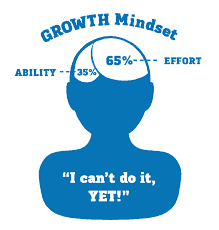Needless to say, some of
the phrases that we adults use when we speak to children are not helpful.
Even if your intentions are good, negative phrases not only discourage
these kids, but also unnecessarily hurt them. I often tell my students
about scars. If you fall and get a scar
on your knee, it hurts, but pretty soon it heals. If you make someone's heart scar, although it
is an invisible mark, it will not go away like a physical scar will.
Check this out.
You get one point for each phrase you have ever said to anyone (adults
and children included);
1. You are lazy.
2. You are not trying
hard.
3. You are not focused.
4. You are always making
excuses.
5. You will not good
enough.
How many points did you
get? If you have ever used even one, it is time to think seriously about
the relationships with the people around you, especially the relationships with
children. First of all, phrases starting with "You" make a
"fixed" situation. These
statements define who these children are.
In most cases, these phrases will not encourage children of any fields,
in school or in sports.
This week, I would like
to challenge you. Instead of using "You" statements, try to use
"I notice" statements. Describe what kids are doing in as much
detail as possible. If you whisper to
the specific person, that is even a plus. For instance, "Mary, I
notice your toes are pointy." Some
researchers suggest including 1 negative "I notice" statement for
every 5 positive "I notice statements. However, I really want you
familiarize yourself with the phrase, "I notice" by using it as much
as you can. Kids will be empowered now
that you are focusing on them. If there are too many people in a group,
you can plan whom you might focus on each day.
"I notice" statements make kids feel that you care about them. Soon they want you to notice them more.
Yes, they will start to want to form a relationship with you.
Another tip for "I
notice" statements is related to the use of negative "I notice"
comments. When you make negative "I notice" comments, try to
ask the child if they agree. For instance,
"Mary, I noticed your running speed is not fast enough during your vault
run. What do you think you can do next time?" Mary might say, "I will move my arms
faster." Let her try her own solution.
Let her fail. If Mary is a
motivated child, she will come to you, "It doesn’t work. What should
I do coach?" If Mary is hesitant to
ask, you can approach her, "I think you should move your legs higher,
etc." (Notice, the coach starting
with "I")
You might feel awkward
using "I notice" statements at first, but pretty soon you will notice
and sense a different attitude from the children. Continue using "I
notice" statements for a week. At
the end of the week, write your self-reflection in a journal, starting with 'I
notice." For instance, "I notice I feel more comfortable using
'I notice' statements. I notice Mary is
more eager to improve. I notice I feel
happy when my gymnasts work hard.” ANYTHING counts!
Try for a week and
comment below if you notice something positive!


